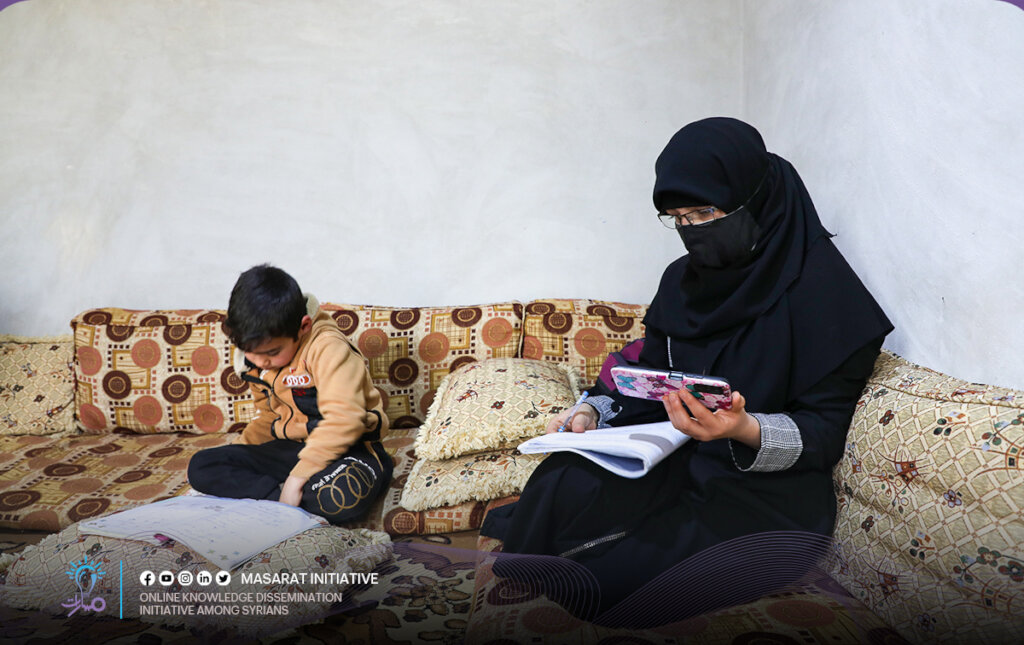Every year, the world celebrates International Literacy Day to highlight the crucial role of basic education in improving the quality of life for individuals and communities.
As technology advances and the educational landscape changes, the importance of literacy grows—not only literacy in reading and writing but also in areas such as digital literacy.
This day reminds us to enhance access to education, overcome challenges, and ensure everyone has the chance to contribute to their community and develop their potential.
Basic Information About Literacy
Traditionally, literacy has been associated with the ability to read and write. However, in today’s digital age, literacy has expanded beyond these traditional skills. We must now embrace new forms of literacy, especially digital literacy, if we wish to remain relevant in our fast-paced technological world.
Thus, it has become essential to broaden the concept of literacy to include “digital literacy,” which involves understanding and navigating digital technologies.
Digital literacy means knowing how to effectively use tools like computers and smartphones, evaluate online information sources, distinguish between trustworthy and unreliable information, and interact intelligently in the digital world.
International Literacy Day and Its Objective
International Literacy Day is an annual event celebrated by UNESCO on September 8 each year. UNESCO established this day in 1966 to raise awareness about the importance of literacy as a human right and a foundation for achieving sustainable development, peace, and prosperity worldwide.
The day emphasizes education as a fundamental right and encourages governments and communities to support literacy programs.
The significance of International Literacy Day lies in its focus on promoting social and economic development, enhancing human rights and equality, and building more sustainable societies.
The Difference Between Adult Education and Literacy
Adult education encompasses advanced skills, while literacy focuses on the basics. The table below outlines the main differences between adult education and literacy:
| Aspect | Adult Education | Literacy Programs |
|---|---|---|
| Goal | Focuses on enhancing advanced skills such as technology and management. | Aims to teach basic reading and writing skills. |
| Target Age Group | Targets adults of all ages. | Focuses on adults lacking basic literacy skills. |
| Content | Includes advanced and professional topics like technology and digital skills. | Focuses on basic reading and writing. |
| Techniques | Utilizes advanced teaching techniques. | Relies on simple methods like repetition. |
| Tools | Uses advanced tools and educational software. | Depends on basic books and tools. |
| Outcomes | Enhances professional and academic skills. | Enables individuals to gain basic literacy skills. |
Global Literacy Statistics
Statistics show that millions of people around the world suffer from illiteracy, which hampers their personal and societal progress. Key literacy-related statistics include:
-
Global illiteracy:
- According to UNESCO, about 773 million adults worldwide are illiterate, two-thirds of whom are women. This highlights the gender gap in access to education and the challenges women face, especially in developing countries, in accessing educational opportunities.
-
Children and youth illiteracy:
Around 258 million children and youth aged 6 to 17 are not attending school, as per a 2020 UNESCO report. In Syria alone, 2.4 million children are out of school. Local and international initiatives, such as Masarat Initiative in northern Syria, are working to provide suitable educational support and save as many of these children as possible.
-
Global digital illiteracy:
According to a 2020 report by the International Telecommunication Union (ITU), approximately 3.7 billion people (about half of the world’s population) lack access to the internet and basic digital skills, highlighting significant challenges in digital literacy.
A UNESCO report also shows that digital illiteracy among women is 20% higher compared to men in many developing countries.
Therefore, Masarat initiative supports women facing difficult living conditions, which have forced them to drop out of school for extended periods. The women and mothers enrolled in Masarat have achieved remarkable success stories that you can enjoy watching.
The Importance of Digital Literacy in Societies and Its Causes
Literacy forms the cornerstone of building a strong and sustainable society. In today’s world, digital illiteracy—the inability to use technological tools—poses a barrier to accessing educational and job opportunities.
Digital technology opens new horizons for individuals in education, work, and community engagement, helping them become more active participants in society.
There are many reasons to develop digital literacy programs, with the most important being that they contribute effectively to:
Enabling Access to Advanced Information and Knowledge:
Access to information should go beyond basic internet searches. Leveraging modern analytical tools and artificial intelligence can help individuals develop critical thinking and make data-driven decisions based on reliable information. This enhances their role as informed consumers and active participants in public life.
Enhancing Competitiveness in the Modern Job Market:
With the rapid digital transformation, skills such as programming, data analysis, and managing digital platforms have become among the most in-demand.
Thus, implementing programs and training that focus on understanding the digital landscape means building the ability to innovate and find unconventional solutions, giving individuals a strong competitive edge.
Expanding the Base of Social and Political Participation:
Mastering digital skills allows individuals to have a voice in societal and political dialogues.
They can participate in digital campaigns, virtual seminars, and community initiatives, thus having an impact on decision-making in ways that were not previously possible.
Fostering Innovation and Entrepreneurship:
Digital literacy empowers young people and entrepreneurs to turn their ideas into successful ventures. By building websites, engaging in digital marketing, and participating in e-commerce, individuals can create new markets and innovative job opportunities, contributing to both local and global economic growth.
Promoting Sustainable Learning and Adapting to Future Changes:
Communities striving for sustainable development need to enhance digital literacy to adapt to rapid technological transformations and embrace innovations that yield long-term benefits.
How to Achieve Literacy Goals?
To achieve literacy goals, diverse strategies must be implemented based on each community’s social and economic context. Governments and concerned entities can work toward literacy through effective methods, including:
-
Sustainable educational programs:
Long-term programs targeting all age groups, from children to the elderly, should be provided. These programs should include traditional education as well as adult education and, most importantly, digital literacy programs that elevate individuals’ productivity.
-
Non-formal and community-based education:
Encourage non-formal education delivered by local communities, NGOs, and initiatives that provide specialized educational sessions.
-
Governmental initiatives and partnerships with the private sector:
National policies and strategies supporting literacy, along with collaboration between governments and private institutions, can provide the necessary funding and logistical and technical support for programs to succeed.
-
Educational TV and radio programs:
Media outlets can be used to broadcast educational programs focused on modern digital skills, spreading awareness among all segments of society.
-
Empowering and training teachers:
Teachers should be trained to handle various groups of learners and to utilize modern digital tools in teaching, encouraging students to take advantage of digital possibilities.
9 Benefits of Digital Literacy
-
Improved job opportunities
: Digital literacy helps individuals acquire essential skills like using computer programs, digital analysis, and online communication, making them qualified for a wide range of jobs in various sectors.
-
Increased income:
Enhanced job opportunities lead to higher incomes, as those with digital skills are more likely to secure higher-paying jobs with greater promotion prospects.
-
Greater community participation:
Digital awareness allows individuals to use social media and digital platforms to engage in community and political activities, helping them to interact with societal issues and express their opinions.
-
Strengthening the Ability to Make Informed Decisions:
Digital skills empower individuals with access to accurate and reliable information, aiding them in making informed daily decisions. They can search for information related to health, education, economics, and politics, which enhances their ability to evaluate options and make decisions that benefit themselves and their families.
-
Enhancing Education:
Digital literacy significantly improves both academic and professional education. Digitally literate students can access online educational resources like digital libraries and e-courses, contributing to higher academic success rates. For professionals, these skills enable them to follow training courses that enhance their abilities and promote career development.
-
Expanding Cultural Awareness:
Digital skills provide individuals with access to a wide range of cultural information sources, such as books, articles, and documentary videos. This enables them to better understand their own culture and those of others, promoting mutual understanding and peaceful coexistence while reducing prejudice and bias.
-
Empowering Individuals to Use Technology:
Digital literacy includes understanding how to use digital devices such as smartphones, tablets, and computers, as well as interacting with software and applications. This equips individuals with the ability to efficiently use digital tools, granting them access to information, government services, and effective communication with others.
-
Enhancing Independence:
With digital skills, individuals can better manage personal affairs, such as paying bills, shopping online, and accessing banking services. This fosters greater independence and reduces reliance on others for assistance in everyday matters.
-
Combating Fake News:
In an era of widespread misinformation, it’s essential for individuals to possess the ability to verify the accuracy of information. Digital literacy helps people evaluate sources, ensuring their credibility and avoiding media deception. This fosters informed knowledge and supports sound decision-making.
The Role of Technology in Promoting Digital Literacy
Technology plays a pivotal role in promoting digital literacy efforts by providing tools and resources that enable individuals to acquire the necessary skills to interact effectively in the digital world. Here are some of the key roles technology plays in this area:
-
Providing Online Learning Platforms:
Online educational platforms such as Coursera, Udemy, and Khan Academy offer individuals access to advanced and often free learning materials on digital skills. These platforms provide courses on a wide range of topics, including programming, data analysis, and digital marketing, enhancing people’s digital literacy flexibly and efficiently.
-
Using Interactive Learning Apps:
Interactive applications like Duolingo and Codecademy contribute to improving the learning experience by offering interactive interfaces and educational tools. These apps make the process of learning digital skills more engaging, providing practical exercises and educational games that motivate users to acquire new skills in a fun and interactive way.
-
Accessing Information Online:
Search engines like Google and databases such as Wikipedia enable users to access diverse information and resources quickly and easily. Individuals can use these tools to find solutions to digital challenges, which enhances their problem-solving abilities and helps them make informed decisions in a digital context.
-
Supporting Innovation in Training Tools:
Technology contributes to the development of innovative training tools such as Virtual Reality (VR) and Augmented Reality (AR), which offer enjoyable learning experiences. These tools can be used to train individuals on using applications and software interactively, making the process of acquiring digital skills more engaging and realistic.
-
Providing Digital Productivity Tools:
Digital productivity tools, such as Microsoft Office and Google Workspace, improve individuals’ efficiency in completing daily tasks. These tools enhance skills in writing, data management, and online collaboration, increasing individuals’ ability to work effectively in a digital environment.
Global and Local Efforts in Promoting Digital Literacy
The growing reliance on technology and digital communication has made global and local efforts in promoting digital literacy more essential. These initiatives aim to equip individuals with the skills and knowledge necessary to use digital technologies effectively, thereby supporting inclusive social and economic growth.
International Efforts to Promote Digital Literacy:
United Nations Initiatives:
Through institutions like UNESCO, UNICEF, and the International Telecommunication Union (ITU), the United Nations has launched several programs to promote digital literacy.
For instance, UNESCO launched the “21st Century Digital Literacy Initiative,” focusing on enhancing individuals’ abilities to use the internet and digital technology to improve their lives.
European Union Projects:
The European Union is a key player in promoting digital literacy. Through its Digital Education Action Plan, the EU funds projects aimed at enhancing digital skills across its member states, including training programs on using digital tools in education and the workplace.
Global Non-Governmental Organizations (NGOs):
Several global NGOs, such as the “Digital Literacy Project” and the “World Computer Literacy Foundation,” provide free training programs and develop educational curricula to promote digital literacy, especially in poor and marginalized communities.
Partnerships with Major Tech Companies:
Tech companies like Google, Microsoft, and Facebook are launching digital literacy initiatives, including free training and interactive online courses. Google’s “Google for Education” program, for example, focuses on enhancing teachers’ skills in using technology in the classroom.
Local Efforts to Promote Digital Literacy:
National Government Programs:
Many countries are implementing national policies to promote digital literacy, such as establishing technology training centers in rural areas and integrating technology and coding courses into school curricula.
Civil Society Initiatives:
Civil society organizations are implementing local programs targeting marginalized groups, such as women, youth, and the elderly, to equip them with digital skills that improve their employment prospects and enable them to participate more fully in society.
Digital Education in Schools and Universities:
Educational institutions are working to include digital literacy as part of their curricula to ensure students possess the necessary skills to handle modern technologies.
Youth and Community Initiatives:
Various youth and community initiatives, such as “digital workshops” and “tech camps,” provide intensive training in technology and digital skills.
Successful Digital Literacy Initiatives
Several official initiatives around the world have been launched by governments and international organizations to promote digital literacy and provide equal opportunities for everyone to participate in the digital economy. Here are some examples:
-
Digital Millennium Initiative – European Union:
This is one of the largest initiatives in Europe to promote digital literacy. Launched as part of the “Europe 2020 Strategy,” it aims to improve digital skills for all citizens and develop digital infrastructure across EU countries. The initiative includes training programs, free courses, and support for tech start-ups.
-
Digital Empowerment for Society Initiative – United Arab Emirates:
Launched by the UAE’s Ministry of Community Development, this initiative aims to empower various community groups to use technology effectively. It targets youth, the elderly, and people with special needs, offering training on using smart applications and digital platforms.
-
SkillsFuture Initiative – Singapore:
Singapore’s SkillsFuture initiative focuses on preparing citizens for the demands of the digital labor market through extensive training programs in fields such as artificial intelligence, data analysis, and cybersecurity.
-
Digital Academy Initiative – Egypt:
Egypt’s Ministry of Communications and Information Technology launched the “Digital Academy” initiative to provide education and training in technology for young Egyptians. The initiative offers specialized courses in programming, AI, digital marketing, and data analysis.
-
Digital Transformation for All Initiative – Canada:
Canada’s “Digital Transformation for All” initiative aims to enhance digital skills across all segments of society. The initiative focuses on providing digital training to marginalized groups, such as women, youth, and ethnic minorities.
The Role of Civil Society in Promoting Digital Literacy
Civil society, including NGOs, charities, and community initiatives, plays a vital role in digital literacy efforts. These institutions rely on local engagement and community participation to improve educational levels and contribute to sustainable development. Here’s how civil society supports digital literacy:
Providing Educational and Training Programs:
Many NGOs and charities launch educational and training programs aimed at improving digital skills. These programs include workshops and courses on using computers and digital applications.
Establishing Educational Centers and Digital Libraries:
Civil society works to create educational centers and digital libraries, providing individuals with access to educational and training resources. These centers often provide internet access to those who lack it at home.
Organizing Awareness Campaigns:
Civil society organizes awareness campaigns to raise awareness of the importance of digital skills. These campaigns include workshops, seminars, and media campaigns focused on the benefits of digital literacy.
Encouraging Digital Innovation:
Civil society encourages digital innovation by supporting initiatives aimed at developing new tools and applications that enhance learning and teach technology.
Improving Access to Funding:
Some organizations offer financial support for individuals and initiatives aimed at improving digital skills, providing grants and financial assistance.
Masarat Initiative: A Model for Digital Education Support in Northern Syria:
Syria has faced a prolonged crisis that has severely impacted its education sector, leaving approximately 2.4 million children out of school. In response, the Masarat Initiative has been providing vital educational support since 2019.
Masarat offers free educational services, benefiting over 31,322 students to date. These students receive high-quality education through an online system via Microsoft Teams, offering an interactive learning experience between students and teachers.
As the new academic year begins, Masarat has welcomed a large number of new students, reflecting the community’s trust in its educational quality and the success stories of its students.
We invite you to join us in supporting this success by contributing to the campaign that provides education to displaced students in Syria. Your support will help Masarat continue to deliver high-quality education and assist students in northern Syria in completing their educational journeys, empowering them to become future leaders of their communities.
By: Alaa Shaheen / Adapted










